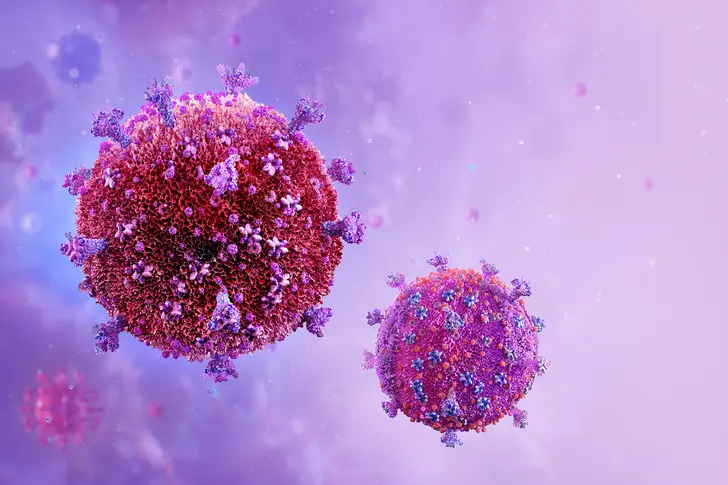- Overview
- Symptoms
- Causes & Risks
- Screening & Testing
- Diagnosis
- Treatment
- How HIV Affects the Body
- Opportunistic Infections
- Complications
- Living With
- Dating & Relationships
- Support & Resources
- Prevention
- Appointment Prep
- View Full Guide
New Advances in HIV Treatment


The Evolution of HIV Treatment
HIV treatment has come a long way since the first antiretroviral therapy in 1987. Today's treatments are more effective and have fewer side effects. However, researchers continue to innovate, aiming to boost quality of life for those living with HIV. New treatments in development focus on longer-lasting medications and potential cures. These advancements offer hope for simpler treatment regimens and better long-term outcomes.

Long-Acting HIV Medications
Traditional HIV treatments require daily pills, which can be challenging for some people to maintain. New long-acting medications, like FDA-approved injectable cabotegravir and rilpivirine, only need to be administered every one or two months. This approach can improve adherence and reduce the daily reminder of living with HIV. While not suitable for everyone, these long-acting treatments represent a significant step forward in HIV management.

Promising HIV Treatments
Lenacapavir, an FDA-approved injectable medication, targets the virus's protective shell and may lower doctor visits to twice yearly. Though it’s only for people with drug-resistant HIV, it represents a new class of treatments. Another promising drug, islatravir, is nearing FDA approval. This weekly pill blocks a protein that helps the virus multiply. Researchers are even exploring a combination of these two innovative treatments.

Gene Editing
Gene editing could be another method of HIV treatment. Gene editing technology changes an organism’s DNA. Studies of gene editing are underway for certain genetic diseases, such as cystic fibrosis. Now, researchers are trying it against HIV. Early experiments on animals suggest that a type of gene editing called CRISPR may disable a virus similar to HIV found in animals, such as monkeys. Very early human clinical trials began in late 2021.

Boosting the Immune System
Some new treatments focus on enhancing the body's natural defenses against HIV. Therapeutic vaccines, currently in development, aim to teach the immune system to better fight the virus. Researchers are studying the HTI vaccine, which teaches immune cells to attack a specific part of the virus that allows it to make copies of itself. These immune-boosting strategies could lead to longer periods of viral suppression.

Testing HIV Treatments
A lot of research goes into HIV treatments to make sure, first, that they are safe and then that they work. Researchers ensure this through clinical trials. This allows them to answer many questions about the drugs. As research progresses, it's crucial to continue current treatments and regular checkups. Stay informed about new developments, and discuss emerging options with your doctor.
PHOTO CREDENTIALS
Slide 1: Corona Borealis Studio/Shutterstock
Slide 2: artem evdokimov/Shutterstock
Slide 3: NMK-Studio/Shutterstock
Slide 4: Natali _ Mis/Shutterstock
Slide 5: artem evdokimov/Shutterstock
Slide 6: Ronald Rampsch/Shutterstock
SOURCES:
National Institutes of Health: “What is a Therapeutic HIV Vaccine?” “What is an Investigational HIV Drug?” “Islatravir,” “Lenavcapavir.”
National Institute of Allergy and Infectious Diseases: “Infographic: Progress Towards an HIV Vaccine.”
FDA: "FDA Approves Cabenuva and Vocabria for the Treatment of HIV-1 Infection.”
Gilead: “Gilead Receives Complete Response Letter From U.S. FDA for Investigational Lenacapavir Due to Vial Compatibility Issues.”